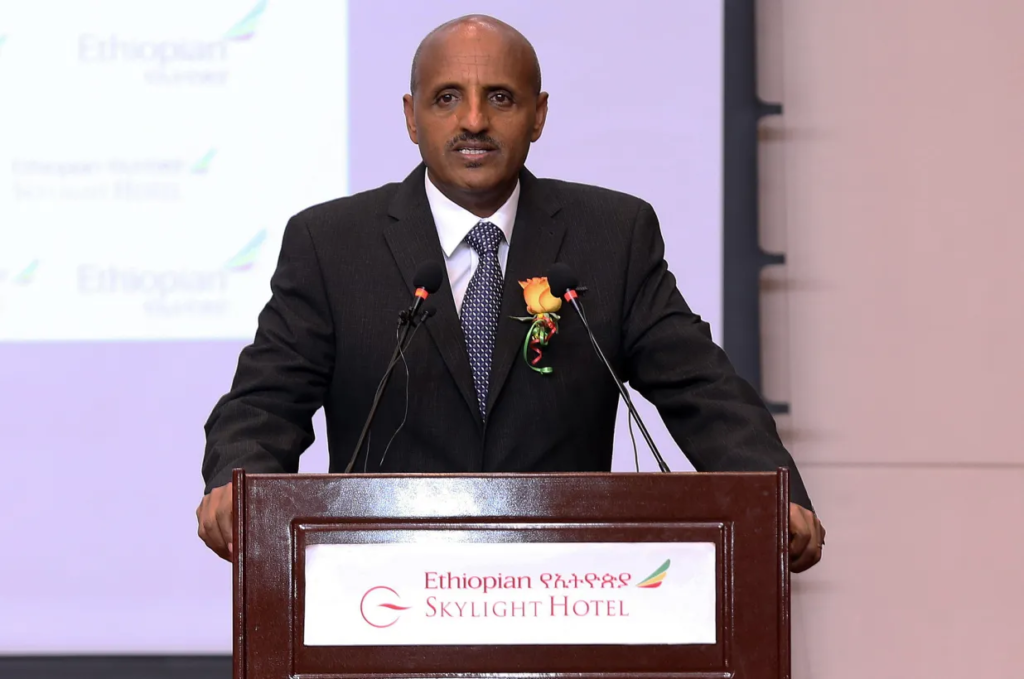President Emmerson Mnangagwa was accused of breaking the law and destroying independent institutions in order to hold onto power by the leader of Zimbabwe’s main opposition.
Nelson Chamisa also cautioned that any indication of election-related interference by Mnangagwa’s party could result in “total disaster” for a beleaguered country that is already the target of sanctions from the US and the EU due to its human rights record. Zimbabwe is already in economic ruin.
Ahead of the elections on August 23, Chamisa, who will challenge Mnangagwa and the ZANU-PF party’s 43-year hold on power, accused his opposition party of being widely intimidated.
Mnangagwa, according to Chamisa, has used authorities like the police and the courts to crack down on critics, halt opposition gatherings, and bar candidates from running.
He outlined a number of issues that suggest the nation may be headed for another violent and contentious election given its past.
Many of Zimbabwe’s 15 million citizens, who live in rural areas hidden from the world’s attention, are compelled to attend rallies for the ruling party and back Mnangagwa and the Zimbabwe African National Union – Patriotic Front under threat of violence, according to Chamisa.
For some, “death or ZANU-PF” was the option, according to Chamisa.
The Citizens Coalition for Change party leader, Chamisa, told the Associated in an interview conducted in his office on the 11th floor of the capital city of Harare, “Mnangagwa is clearly inciting a national crisis.”
“He is bringing instability to the nation. In reality, he is causing unrest. He disobeys the law. He is destroying the nation’s institutions.
Mnangagwa has publicly urged his supporters to behave peacefully throughout the campaign and has consistently refuted claims of intimidation and violence by the government or his party.
However, Amnesty International and Human Rights Watch reports that were made public in advance of the presidential, parliamentary, and local government elections that will take place in three weeks support Chamisa’s portrayal of a highly repressive political environment in the southern African nation, where the overthrow of autocrat Robert Mugabe in 2017 appears to have been a false dawn.
They will occur in the midst of “five years of brutal crackdowns on human rights,” according to Amnesty, after Mnangagwa ousted Mugabe in a coup and narrowly defeated Chamisa in a contested presidential election in 2018.
According to Human Rights Watch’s assessment, Zimbabwean authorities “weaponized the criminal justice system against the ruling party’s opponents” and the election’s preparations fell short of free and fair criteria set by other countries.
Zimbabwe has abundant agricultural potential, enormous natural resources, notably Africa’s greatest quantities of highly sought-after lithium, and might be of great help to the continent if it could achieve the political and economic stability that has eluded it for so long.
Due to crimes committed under Mugabe’s rule, who passed away in 2019, Zimbabwe was ignored by the West for 20 years.
Zimbabweans celebrated Mugabe’s ouster in the streets, and Mnangagwa declared that the revolution would bring about democracy and freedom.
Recently, he insisted that “Zimbabwe is now a mature democracy” under his rule.
Rights organizations claim it is a fantasy and that longtime Mugabe supporter and enforcer Mnangagwa, 80, has been just as oppressive as the leader he ousted.
Critics and opposition leaders have been imprisoned under Mnangagwa, including CCC MP Job Sikhala, who has been in captivity for more than a year after accusing members of the ruling party of murdering an opposition activist by hacking.
Some have seen legal repercussions for what appear to be trivial critiques, such as acclaimed author Tsitsi Dangarembga, who was detained for taking part in a demonstration that demanded better services for citizens.
Even though the electoral agency claimed that all 12 CCC candidates in Bulawayo, the country’s second-largest city, had registered lawfully, a court decision barred them from running in the election.








